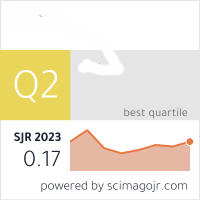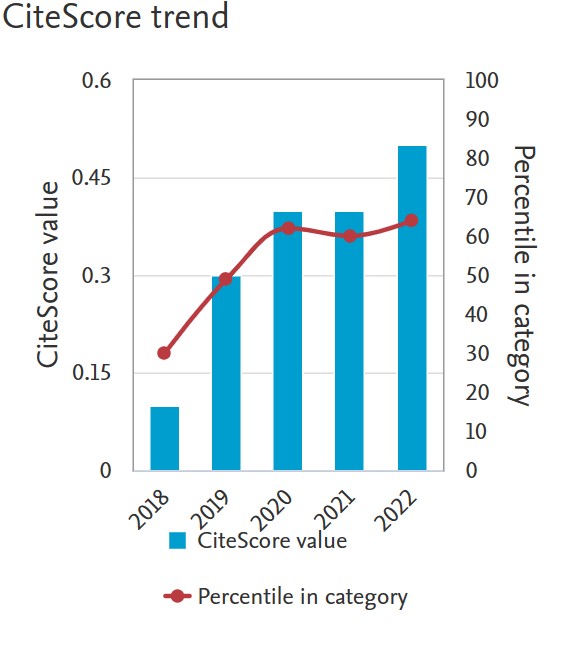The effect of the Organic Cation Transporters! (OCT1) gene polymorphism on the therapeutic efficacy of metformin in type 2 diabetic patients in Basrah/ Southern Iraq
Keywords:
Type 2 diabetes mellitus, Metformin, SNP, rs12208357/R61C, rs72552763/Met420delAbstract
Metformin does not undergo metabolism inside the body and is excreted in the urine unchanged. The organic cation transporter1 (OCT1) is one of the most numerous hepatic transporters and has an essential function in the hepatic transport of metformin. The study objectives are to research the prevalence of two (single nucleotide polymorphism) SNP [rs12208357] and [rs72552763] of (OCT1) of SLC22A1 gene in type 2 diabetes mellitus (T2DM) patients in (Basrah city)/South of Iraq and to investigate the association between these SNPs and metformin efficacy. It is a prospective cohort study. The study involved one hundred and two adult patients recruited from two large tertiary care centers in Basrah city. All the patients received immediate-release metformin tablets 1g twice daily for three months. Laboratory data included (HbA1C) and fasting blood glucose (FBG) initially and later after three months of the study. Metformin responders are patients whose HbA1c values are reduced by ≥1% after 90 days of metformin monotherapy. All enrolled patients were genotyped for two of the most prevalent SNPs in the OCT1 gene by using ARMS- PCR genotyping assays. Inclusion criteria include: newly diagnosed (drug naïve) T2DM patients with HbA1C range (6.5-9.9), ages ranging from 25 and 75 years old, and signed consent from all the participants. This study had 33 non-responders, and the reduction in FBG and HbA1C levels in the responder's group was significant (p-value ˂ 0.05) after 90 days of treatment. The patients with homozygous genotype (CC) of rs12208357 and (AA) of rs72552763 gene polymorphism were characterized by good therapeutic efficacy of metformin.
Downloads
References
Nathan DM, Buse JB, Davidson MB, Ferrannini E, Holman RR,
Sherwin R, et al. Medical management of hyperglycaemia in
type 2 diabetes: a consensus algorithm for the initiation and
adjustment of therapy. A consensus statement from the
American Diabetes Association and the European Association
for the Study of Diabetes.Diabetologia. 2009;52:17-30.
Bailey CJ, Turner RC. Metformin. N Engl J Med.1996;
(9):574-579.
Kirpichnikov D, McFarlane SI, Sowers JR. Metformin: an
update. Ann Intern Med. 2002;137:25-33.
Zhou M, Xia L, Wang J. Metformin transport by a newly cloned
proton-stimulated organic cation transporter (plasma
membrane monoamine transporter) expressed in human
intestine. Drug Metab Dispos.2007; 35:1956-1962.
Dujic T, Zhou K, Yee SW, van LeeuwenN,de KeyserCE,Javorsky M,
et al.Variants in pharmacokinetic transporters and glycemic
response to metformin: a metgen meta-analysis. Clin
Pharmacol Ther 2017;101:763-72.15.
Proctor WR, BourdetDL & ThakkerDR. Mechanisms
underlying saturable intestinal absorption of metformin.
Drug Metabolism and Disposition 2008; 36 1650-1658.
Takane H, Shikata E, Otsubo K, Higuchi S, leiri I.
Polymorphism in human organic cation transporters and
metformin action. Pharmacogenomics 2008; 9:415-22.
The International HapMap Consortium. The International
HapMap Project. Nature; 426: 789-796.
Florez JC. (2017). The pharmacogenetics of
metformin. Diabetologia 2003; 60:1648-1655.
Shu Y, Sheardown SA, Brown C, Owen RP, Zhang S, Castro
RA, et al. Effect of genetic variation in the organic cation
transporter 1 (OCT1) on metformin action. J Clin
lnvest.2007; May; 117(5):1422-31.
Wang DS, Jonker JW, Kato Y, Kusuhara H, Schinkel AH,
Sugiyama Y. Involvement of organic cation transporter1
IN HEPATIC AND INTESTINAL DISTRIBUTION OF METFORMIN. J
PharmacolExp Ther 2002;302:510-515.
Christensen MMH, Brasch-Andersen C, Green H, Nielsen F,
Damkier P, Beck-Nielsen H, etal. The pharmacogenetics
of metformin and its impact on plasma metformin
steady-state levels and glycosylated hemoglobin A1c.
Pharmacogenet Genomics 2011; 21:837-50.
Zhou K, Donnelly LA, Kimber CH, Donnan PT, Doney AS, Leese G
et al. Reduced-function SLC22A1 polymorphisms encoding
organic cation transporter 1 and glycemic response to
metformin: A GoDARTS study. Diabetes 2009;58:1434-1439.
Mofo Mato EP, Guewo-Fokeng M, Essop MF, Owira PMO.
Genetic polymorphisms of organic cation transporter 1
(OCT1) and responses to metformin therapy in
individuals with type 2 diabetes: A systematic review.
Medicine (Baltimore). 2018; Jul; 97(27):e11349.
Loganadan, N.K.; Huri, H.Z.; Vethakkan, S.R.; Hussein, Z.
Genetic markers predicting sulphonylurea treatment
outcomes in type 2 diabetes patients: Current evidence
and challenges for clinical implementation.
Pharmacogenom. J. 2016; 16, 209-219.IDF Diabetes Atlas: Global, regional and country-level
diabetes prevalence estimates for 2021 and projections
for 2045. Diabetes Research and Clinical Practice
Volume 183, January, 2021;109119.
Abusaib M, Ahmed M, Nwayyir HA, Alidrisi HA, Al-Abbood M,
Al-Bayati A, et al. Iraqi Experts Consensus on the
Management of Type 2 Diabetes/Prediabetes in Adults.
Clin Med Insights Endocrinol Diabetes. 2020; Aug 19;
:1179551420942232.
Singh, S.; Usman, K.; Banerjee, M. Pharmacogenetic studies
update in type 2 diabetes mellitus. World J. Diabetes.
; 7, 302-315.
Kahn SE, Haffner SM, Heise MA, Herman WH, Holman RR,
Jones NP, et al. Glycemic durability of rosiglitazone,
metformin, or glyburide monotherapy. N Engl J Med.
; 355:2427-43.
Chan SL, Samaranayake N, Ross CJD, Toh MT, Carleton B,
Hayden MR, et al. Genetic diversity of variants involved
in drug response and metabolism in Sri Lankan
populations: implications for clinical implementation of
pharmacogenomics. Pharmacogenet Genomics.2016;
:28-39.
Becker ML, Visser LE, van Schaik RH, Hofman A, Uitterlinden
AG, Stricker BH. Genetic variation in the organic cation
transporter 1 is associated with metformin response in
patients with diabetes mellitus. Pharmacogenomics
J.2OO9; 9:242-7.
Nasykhova, Y.A.; Tonyan, Z.N.; Mikhailova, A.A.; Danilova,
MM; Glotov, A.S. Pharmacogenetics of type 2 diabetesprogress and prospects. Int. J. Mol. Sci.2O2O; 21, 6842.
Shikata E, Yamamoto R, Takane H, Shigemasa C, Ikeda
T, Otsubo K, et al. Human organic cation transporter
Downloads
Published
Issue
Section
License
You are free to:
- Share — copy and redistribute the material in any medium or format for any purpose, even commercially.
- Adapt — remix, transform, and build upon the material for any purpose, even commercially.
- The licensor cannot revoke these freedoms as long as you follow the license terms.
Under the following terms:
- Attribution — You must give appropriate credit , provide a link to the license, and indicate if changes were made . You may do so in any reasonable manner, but not in any way that suggests the licensor endorses you or your use.
- No additional restrictions — You may not apply legal terms or technological measures that legally restrict others from doing anything the license permits.
Notices:
You do not have to comply with the license for elements of the material in the public domain or where your use is permitted by an applicable exception or limitation .
No warranties are given. The license may not give you all of the permissions necessary for your intended use. For example, other rights such as publicity, privacy, or moral rights may limit how you use the material.











